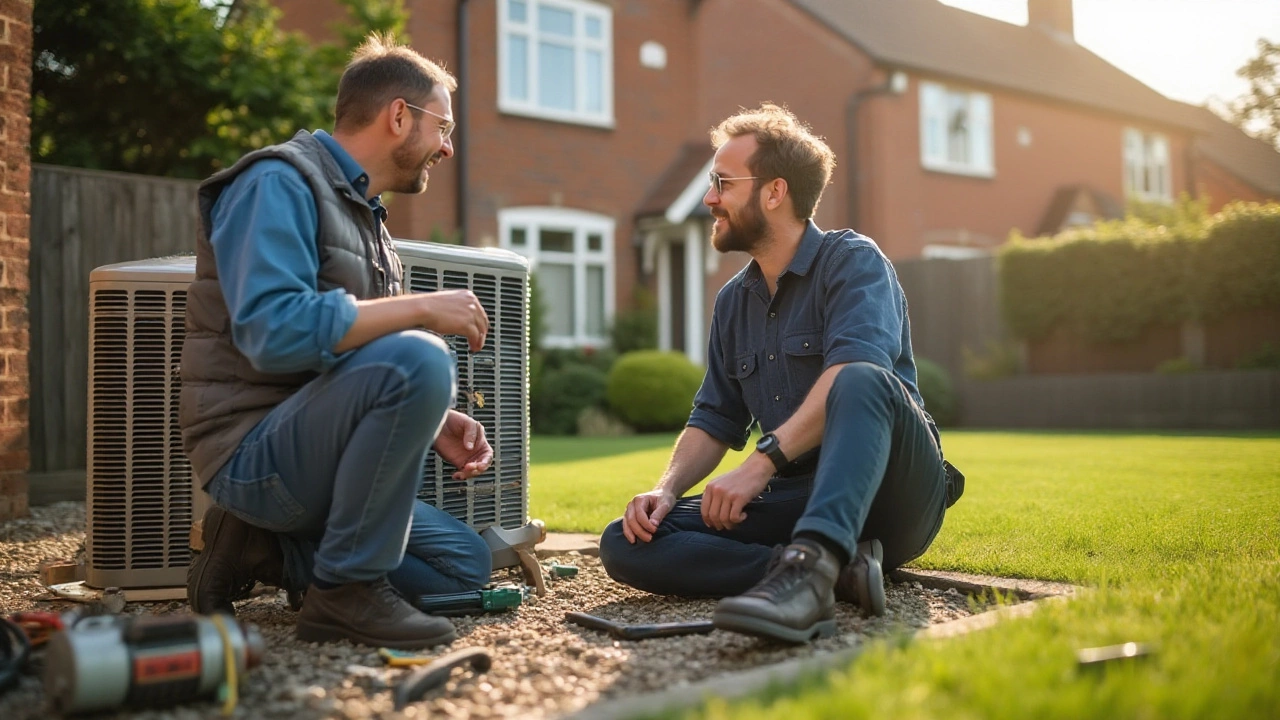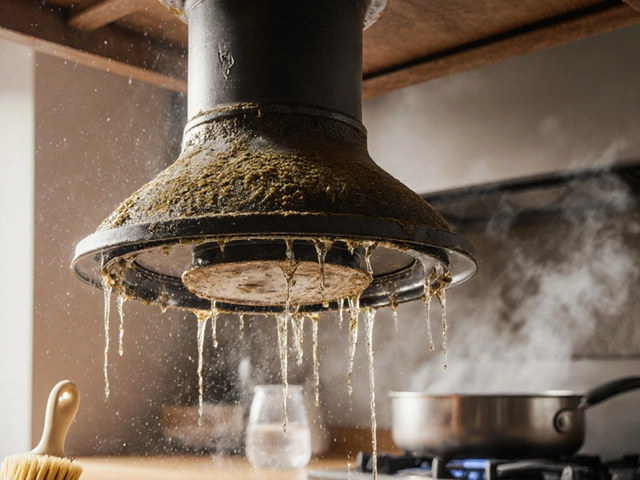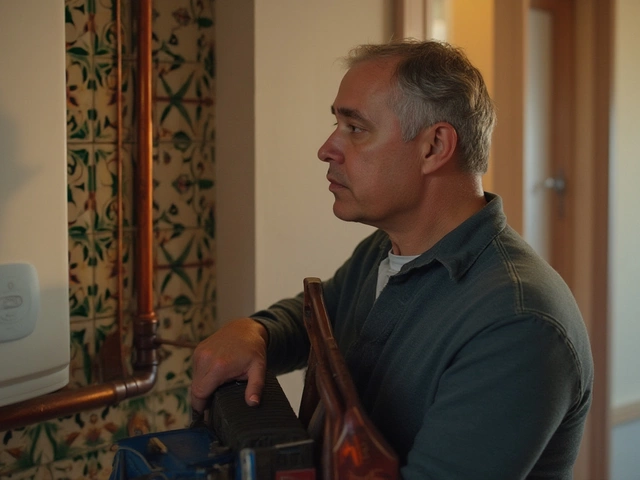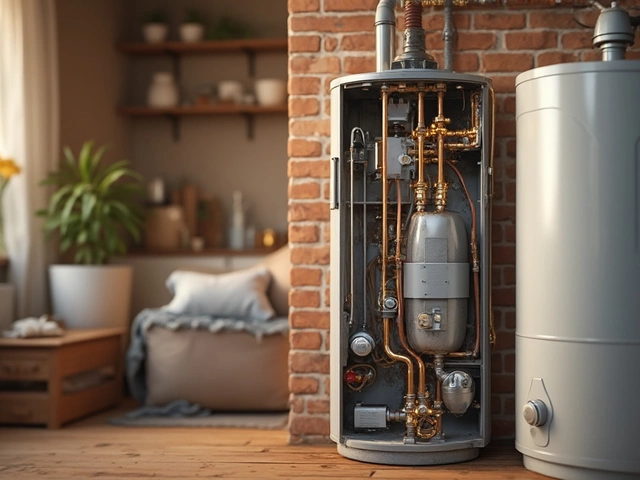Navigating the world of HVAC systems can be quite the journey, especially when it's time to talk about compressor replacements for heat pumps. These vital components are the heart of any system, working tirelessly to maintain the comfort of your home through all seasons. But the question that often buzzes in the minds of homeowners is, how much does a new compressor actually cost?
Understanding the variables influencing the price of a heat pump compressor is crucial. Different factors, like the heat pump's model, brand, and any additional required repairs, can play a significant role in determining the final cost. In this article, we'll explore these factors in-depth, providing you with valuable insights and practical advice for choosing the right compressor, alongside some handy maintenance tips to help you get the most from your investment.
- What is a Heat Pump Compressor?
- Factors Affecting Compressor Cost
- Average Cost of Compressor Replacement
- Tips for Choosing the Right Compressor
- Maintenance Tips to Prolong Compressor Life
What is a Heat Pump Compressor?
Imagine your heat pump as the heart of your home's heating and cooling system, with the compressor as its beating core. The compressor plays a vital role in managing the temperature within your home, continuously circulating refrigerant between the indoor and outdoor units. By compressing and decompressing this refrigerant, it enables the transfer of heat, effectively swapping it from inside to outside and vice versa, depending on the season. This cycle allows your home to stay cozy in winter and refreshingly cool in summer, demonstrating both the versatility and efficiency of a well-operated heat pump system.
Despite being a crucial part of the HVAC system, the compressor often operates quietly behind the scenes, its significance becoming most noticeable only when it stops working effectively. The device itself is usually cylindrical and can vary in size and shape depending on the specific heat pump model and brand. It is housed outside the home, designed to withstand a variety of weather conditions, and built to last for several years. The design and build quality of the compressor can significantly influence its lifespan and efficiency, often making it the most substantial investment in the heat pump system.
Understanding the operational mechanism of a compressor can be fascinating. It uses an electrical motor to compress the refrigerant, which starts in a low-pressure, gaseous state, then compresses it into a high-pressure, high-temperature gas. This gas travels through coils where it releases energy and condenses into a liquid state. Even though this process might seem technical, it's this heat transfer capability that equips heat pumps with an eco-friendly edge, as they utilize existing environmental heat rather than generating it from scratch.
Many experts, including seasoned HVAC technicians, often emphasize the critical need to maintain your heat pump compressor. Proper maintenance can avoid costly repairs or replacements. The Department of Energy has noted the efficiency of modern heat pumps, particularly their ability to reduce electricity use for heating by approximately 50% compared to baseboard heaters and electric furnaces.
"An efficient compressor is the linchpin of any modern HVAC system, pivotal in reducing energy bills and carbon footprints," highlights HVAC specialist, Daniel K. Morgan.This makes the heat pump compressor not just a piece of machinery but a cornerstone in energy efficiency and environmental stewardship.
Factors Affecting Compressor Cost
When it comes to replacing a compressor in your heat pump system, understanding the various factors that influence the cost can help you budget effectively and make informed decisions. The first major consideration is the type of heat pump you have. Different models, whether they're part of a split system, packaged unit, or geothermal design, will have specific compressor requirements which can significantly impact price. Older models might require custom parts that are harder to find, therefore costing more, while more modern systems often come with a variety of compressor options at different price points.
The brand of the heat pump also plays a substantial role in determining compressor cost. Some brands are renowned for their durability and technological advancements, typically coming with a higher price tag. However, paying more for a reputable brand might offer better longevity and fewer issues down the road. On the other hand, more economical brands might seem appealing initially but can lead to more frequent repairs, impacting long-term costs. HVAC professionals often emphasize buying trusted brands, with Jeff Wilson of HGTV remarking, "In the long run, investing in a reliable brand can save you headaches and money."
Another key factor to consider is the nature and extent of any additional repairs needed. Sometimes, replacing a compressor isn't as simple as swapping out the old for the new. There might be accompanying issues such as refrigerant leaks or electrical problems that need to be addressed. If your heat pump is already aging, these additional repairs could add significantly to overall costs. It's important to get a thorough inspection by a professional to avoid any hidden surprises.
The labor cost associated with compressor replacement can also vary. This largely depends on the complexity of the job and the expertise of the technician. Typically, urban areas with a higher cost of living will see steeper labor rates compared to rural locations. Additionally, if you opt for a licensed, experienced technician, expect their rates to reflect their expertise, ensuring the job is done efficiently and professionally.
Finally, seasonal factors can sometimes affect the price of heat pump repairs. During peak seasons, such as winter or summer, when the demand for heating or cooling is high, costs might rise due to the increased demand for HVAC services. The time of year you choose to replace your compressor can either inflate or moderately deflate service costs, making it a strategic consideration for homeowners.
| Factor | Impact on Cost |
|---|---|
| Type of Heat Pump | Varies by design and model |
| Brand | High-end brands cost more |
| Additional Repairs | Can significantly increase cost |
| Labor Cost | Depends on location and expertise |
| Seasonal Demand | Prices can rise in peak seasons |
Not all factors are controllable, but by being aware of them, you can navigate the process more strategically. It's always wise to consult multiple HVAC professionals and compare estimates, ensuring you secure a deal that best suits your financial and comfort needs.
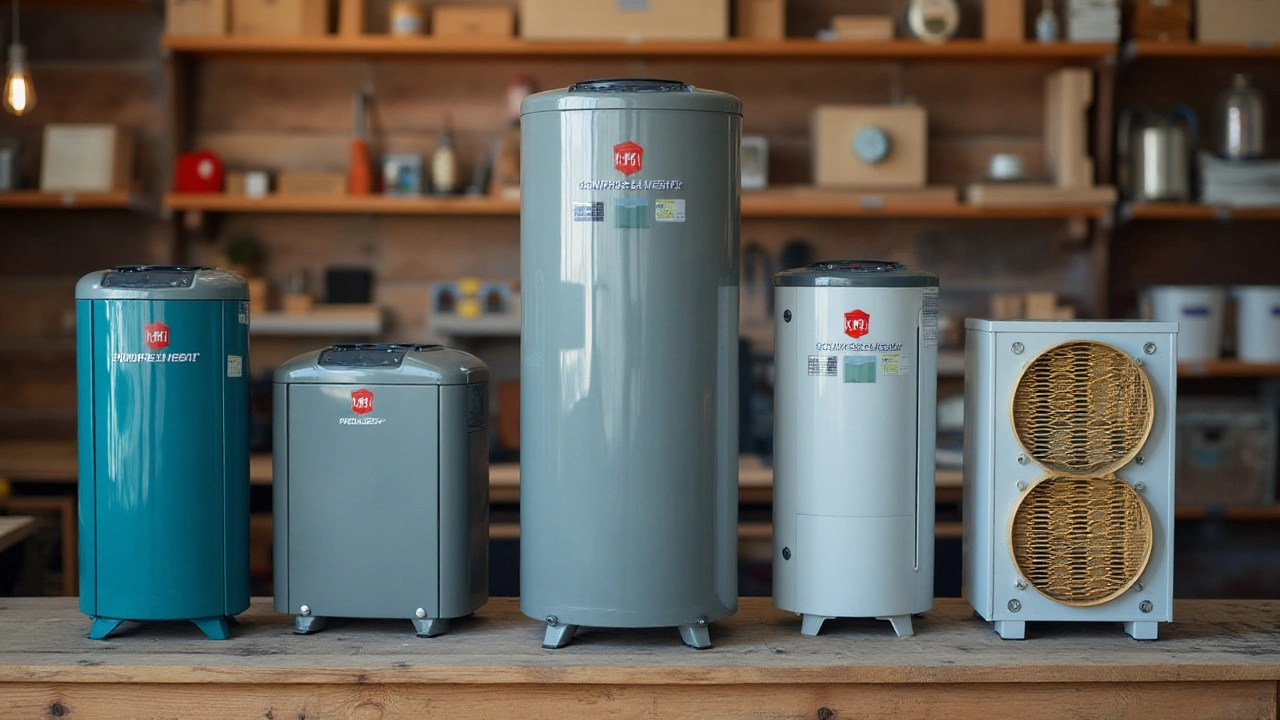
Average Cost of Compressor Replacement
Understanding the cost implications of replacing a compressor in a heat pump is essential for any homeowner who relies on this efficient system for heating and cooling. A heat pump compressor is not just any component—it serves as the powerhouse, circulating refrigerant throughout the system to manage your home’s climate. Therefore, when it becomes necessary to replace it, knowing what to expect financially is key.
The average cost of replacing a heat pump compressor can typically range from $800 to $2,500, depending heavily on various factors. Some critical considerations include the type and size of the heat pump, the brand of the compressor, and the labor involved in installation. Larger units or more intricate systems generally require more expensive compressors, which can drive up costs. Additionally, prices may fluctuate depending on whether you're dealing with a basic model or one with advanced features designed for higher efficiency.
Labor costs form a significant portion of the total expense. Professional installation is highly recommended for this complex task and usually ranges between $500 and $1,000. Choosing to rely on an experienced HVAC technician ensures the compressor is installed correctly and that the system will function optimally, minimizing potential future costs related to improper installation or wear-and-tear.
Some homeowners may be tempted by the prospect of saving money through do-it-yourself installation; however, this is usually discouraged. The intricate knowledge required to understand the heat pump repair process, coupled with specialized equipment, means that what starts as a cost-saving initiative could end up being costlier in the long term should errors occur. There are anecdotal warnings that highlight mishandled installations leading to further damage to the unit, underscoring the importance of expertise in this area.
"Replacing a compressor is more than just a simple part swap; it requires a thorough understanding of the entire HVAC system," notes an industry expert from Home Energy Magazine. "A small oversight can affect the entire functioning of the heat pump, leading to higher energy bills and uncomfortable indoor environments."
Seasonal timing also affects replacement costs. The demand for HVAC services spikes during extreme temperatures in summer and winter, potentially driving up costs due to heightened demand. If you find yourself in need of a replacement, seeking out a contractor during milder seasons, such as spring or fall, might offer some financial reprieve.
In some scenarios, your existing warranty could play a pivotal role. If parts or the entire system are still under warranty, you may only incur labor costs. Always check with your manufacturer or review the warranty documentation to confirm coverage, as this can significantly reduce your out-of-pocket expenditure on a compressor cost replacement.
Lastly, don't forget to consider energy efficiency when purchasing a replacement compressor. Investing a bit more up front for a high-efficiency model can result in savings down the line through reduced energy bills. Balancing the initial compressor cost with potential long-term savings is an essential step in the decision-making process for informed homeowners.
Tips for Choosing the Right Compressor
When it comes to selecting a new compressor for your heat pump, being informed is key to making a decision that will serve your home's needs for years to come. The compressor is essentially the workhorse of your HVAC system, and choosing the right one can mean the difference between seamless operation and frequent repairs. First, it's important to consider the type of heat pump you have, as compressors are not a one-size-fits-all component. Consulting the manufacturer's specifications can provide guidance on what compressor types are compatible with your current setup. Equally crucial is to ensure that the compressor you choose is fitted for the specific tonnage and capacity required by your system.
Another critical factor in your decision should be the efficiency ratings. Higher efficiency compressors tend to have a greater upfront cost; however, they provide significant savings over time by reducing your energy bills. It's worth investing in an ENERGY STAR rated compressor, which can save up to 30% in energy costs. As noted by the U.S. Department of Energy, "Heating and cooling constitute about 48% of the energy use in a typical U.S. home, making it the largest energy expense for most homes." This underscores the importance of efficiency in choosing your new compressor.
In addition to technical specifications and efficiency, don't underestimate the necessity of professional advice. An experienced HVAC technician can help you analyze your current system's needs, recommend brands that have a reputation for reliability, and provide insights on new models that utilize advanced technologies. Brands like Trane and Carrier often come highly recommended due to their durability and efficiency. Be sure to discuss warranty options and service plans with your technician. A good warranty can save you from unforeseen expenses should a repair be necessary.
Staying within budget while securing quality components might seem challenging, but taking advantage of sales events or local rebates can significantly reduce costs. Some utility companies even offer incentives for upgrading to more energy-efficient systems. Before making a final decision, take the time to research customer reviews and ratings on specific compressor models to understand the experiences of other consumers. In this digital age, the community’s feedback can be an invaluable resource in making the right choice.
Lastly, ensure you're selecting a compressor from a reputable retailer or service provider who offers clear return policies and service guarantees. This step is essential to protect your investment, especially when dealing with components as crucial as the compressor. Choose suppliers who are transparent about their pricing, so you avoid hidden fees and charges.
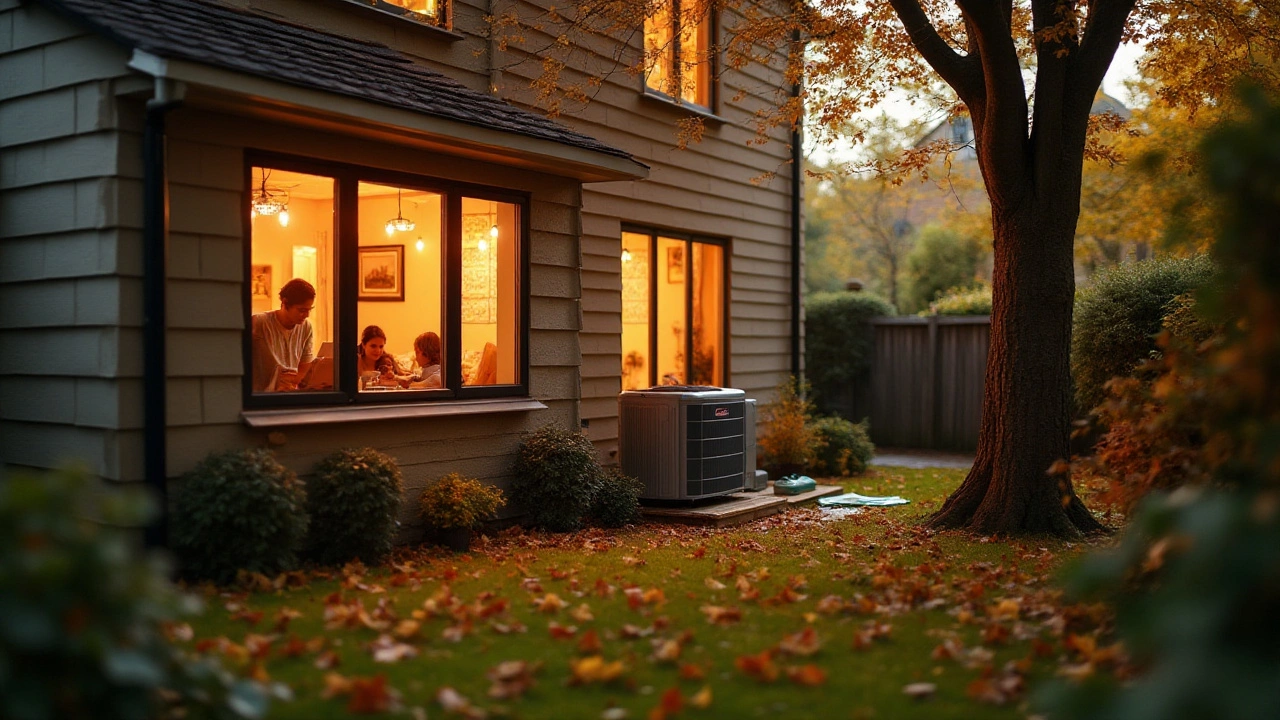
Maintenance Tips to Prolong Compressor Life
When it comes to ensuring a long and healthy life for your heat pump compressor, maintenance is the key. A well-maintained compressor not only enhances the efficiency of your HVAC system but also saves you from potential costly repairs and replacements. One of the primary things you need to remember is to keep your compressor clean. Dirt and debris can obstruct the unit and reduce its efficiency. Regular cleaning of the external unit is necessary. You also need to ensure that there's no build-up of dust or vegetation around the unit, which could impede airflow and cause the compressor to work harder than it should, eventually leading to a shorter lifespan.
Apart from cleanliness, consistent professional servicing is vital. Engaging a qualified technician for regular inspections can identify minor issues before they balloon into serious problems. Technicians can efficiently gauge refrigerant levels and assess electrical connections to avoid problems that might result in a dire need for heat pump repair. Many homeowners wouldn't be aware of specific technical glitches, but a trained eye can spot these in their tracks. In fact, according to the U.S. Department of Energy, regular maintenance can improve a system’s efficiency by up to 30%, lowering energy bills significantly. It's always worth investing in these seasonal checks.
Monitoring the noise levels from your compressor is another pivotal aspect of maintenance. While some humming is typical, loud or unusual sounds may indicate underlying issues. These noises could be due to loose components or inadequate lubrication. Should you notice such an anomaly, addressing it promptly can prevent further escalation. In that context, it’s crucial to ensure all moving parts are well-lubricated. Lubrication decreases friction and subsequent wear and tear. It's a small detail that makes a big difference to the compressor’s function.
“Prevention is better than cure. Taking simple steps to keep your heat pump running efficiently can save you costly repairs in the future,” notes HVAC expert John Reynolds.
Another tip is to manage load efficiently. Turning off the heat pump when not in use for extended periods prevents wear and removes unnecessary padding on the compressor. Additionally, constantly fiddling with the thermostat can put undue stress on the heat pump. Instead, try to set a stable temperature and let the system achieve it at a steady pace. This practice not only keeps your living space comfortable but also reduces compressor strain.
Using Surge Protectors
Electrical surges can wreak havoc on compressors. Consider installing dedicated surge protectors to guard against these abrupt power spikes. Surrounded by sensitive electronics, the compressor's vulnerable parts can take a severe hit due to voltage irregularities. Installation of these protectors, recommended by many HVAC professionals, is a straightforward process and acts as a valuable defensive mechanism against electrical damage. Being meticulous about this aspect of maintenance could effectively safeguard your compressor from sudden breakdowns.
Lastly, don't underestimate the value of reading the manual that comes with your heat pump. It’s brimming with genuine insights directly from the manufacturer and often includes valuable maintenance tips specific to your model. Also, homeowners should be cautious about DIY attempts which might lead to complications. When in doubt, call a professional. Implementing these practices keeps your heat pump compressor robust and working seamlessly, bringing you peace of mind and comfort for years to come.
